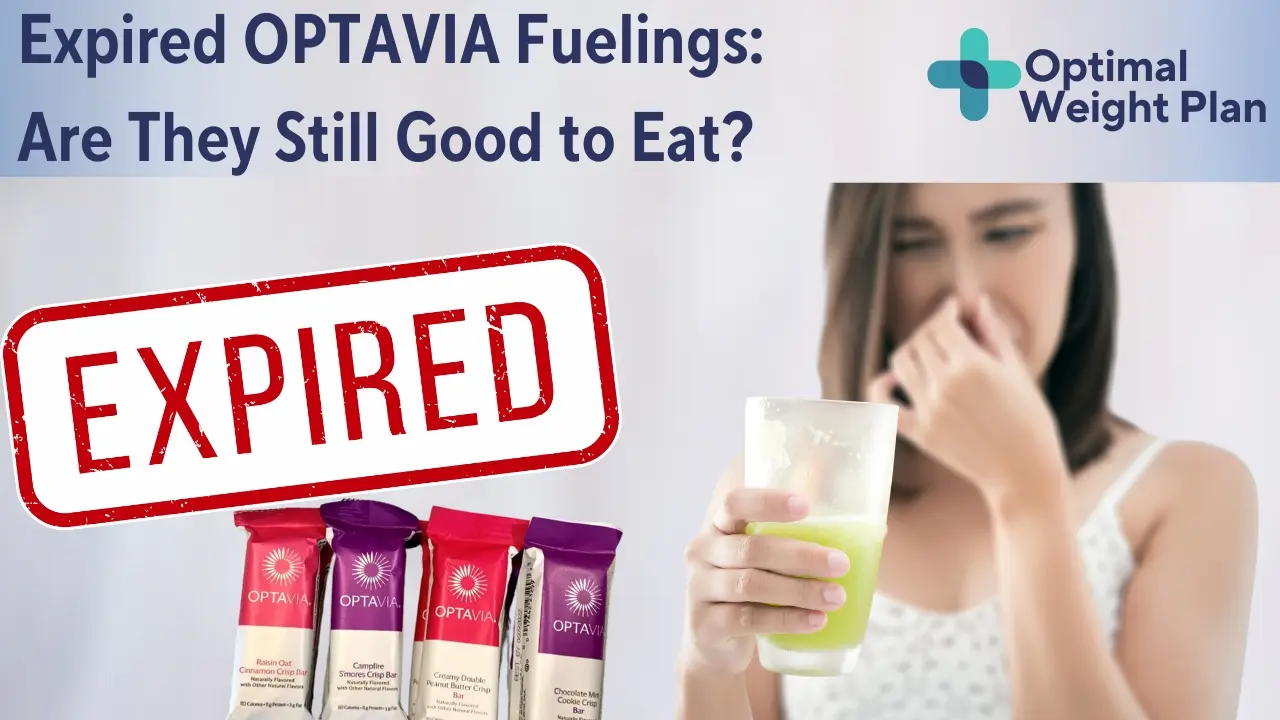We’ve all stared down expired Optavia fuelings, wondering if they’re still safe to eat. The good news: expiration dates indicate peak quality, not safety deadlines. Processed foods like Optavia are less likely to harbor harmful bacteria than raw foods. As long as you store them properly and check for signs of spoilage, expired fuelings can still be safe to consume. But use your senses to double-check – if you notice any off-odors, slimy textures, or mold growth, it’s time to toss them. Now that we’ve got the basics covered, let’s dive deeper into the world of expired Optavia fuelings and discover how to make the most of them.
Understanding OPTAVIA Expiration Dates
Our understanding of OPTAVIA expiration dates is crucial in maneuvering the world of meal replacement products, as it directly impacts how we approach their consumption and storage. We’ve all been there, staring at food labels, wondering what those dates really mean. Let’s debunk some Expiration Myths: Optavia expiration dates indicate peak quality and taste, not safety deadlines. In fact, many foods remain safe six months past their ‘best before’ date. Food labels often confuse people, leading to unnecessary food waste. It’s time to separate fact from fiction and master the world of meal replacement products.
Eating Expired OPTAVIA Food
When it comes to eating expired Optavia food, we need to exercise caution and make informed decisions to minimize potential risks. While expired Optavia fuelings can still be safe to eat, we should be mindful of food safety and Optavia quality. Processed foods like Optavia are less likely to harbor harmful bacteria than raw foods, but it’s essential to use our senses to double-check expired products before consumption. If we notice signs of spoilage or fermentation, it’s best to err on the side of caution and discard the item. By being aware of the risks and taking necessary precautions, we can enjoy our Optavia food while maintaining food safety and quality.
Factors Affecting Shelf Life
We find that several factors contribute to the shelf life of Optavia fuelings, including the time elapsed since the expiration date, storage conditions, and the presence of mold, off-odors, or discoloration. These factors must be taken into account when deciding whether to consume expired fuelings. Proper storage conditions, such as a cool, dry place, can greatly extend the shelf life of Optavia products. On the other hand, damaged product packaging can expose the contents to moisture, contaminants, or pests, affecting their safety and quality. We must also bear in mind that previously opened products have a shorter lifespan than sealed items.
Benefits and Risks
Eating expired Optavia diet food can lead to significant cost savings, with the potential to cut monthly expenses by nearly $200. This is a huge plus for us, as we’re always looking for ways to save. By using up expired Optavia items, we’re not only reducing food waste but also contributing to a more sustainable lifestyle. And, as long as the products show no signs of spoilage, they’re still safe to consume. However, we need to be aware of the potential risks. The nutrient retention might be affected, and the taste might not be as fresh. In addition, there’s a risk of bacterial growth and spoilage. We’ll weigh the benefits and risks, making informed decisions about our Optavia fuelings.
Proper Storage and Handling
To maximize the shelf life of our Optavia fuelings and maintain their nutritional quality, proper storage and handling are essential. We need to keep our fuelings fresh and retain their flavor.
To do this, we must maintain optimal storage conditions. Here are some storage tips to keep in mind:
| Storage Tip | Why It Matters | How to Do It |
|---|---|---|
| Store in cool, dry places | Prevents moisture buildup and bacterial growth | Avoid storing near ovens or direct sunlight |
| Use fresh containers | Prevents contamination and spoilage | Replace old containers with new ones regularly |
| Seal containers tightly | Prevents air and moisture from affecting the product | Check seals before storing |
| Organize kitchen storage | Easy access to Optavia fuelings | Label and categorize containers for easy identification |
Safety Precautions and Signs
One essential aspect of consuming expired Optavia fuelings is recognizing the signs that indicate they’re no longer safe to eat. We’ve all been there – rummaging through our pantry, wondering if that expired bar is still good to go. When it comes to Optavia fuelings, it’s vital to use our senses to detect any signs of food spoilage. Check for off-odors, slimy textures, or mold growth. If you notice any of these signs, it’s time to bid farewell to that fueling. Proper storage is also key in preventing food spoilage. Remember, storing Optavia fuelings in a cool, dry place and following storage tips can notably extend their shelf life.
Extending Shelf Life
Our goal is to maximize the shelf life of Optavia fuelings by implementing smart storage strategies that maintain their nutritional value and flavor. We’ve learned that proper storage is key to extending shelf life, so let’s explore some storage hacks that’ll keep our fuelings fresh for a longer period. One essential tip is product rotation – we should consume the oldest items first to avoid having expired products lingering in the back of our pantry. By doing so, we’ll reduce food waste and maintain getting the most nutritional value from our Optavia fuelings. Additionally, storing them in airtight containers and keeping them away from direct sunlight will help preserve their quality. With these simple storage hacks, we can enjoy our Optavia fuelings for a longer time while maintaining their flavor and nutritional integrity.
Conclusion
Ready to take control of your weight loss journey? Our experienced OPTAVIA coaches can help you reach your goals. Book a free consultation today and discover how the 5 & 1 Plan can transform your life. Limited spots available for free OPTAVIA consultations! Don’t miss your chance to start your weight loss journey with personalized support. Book your call now.


